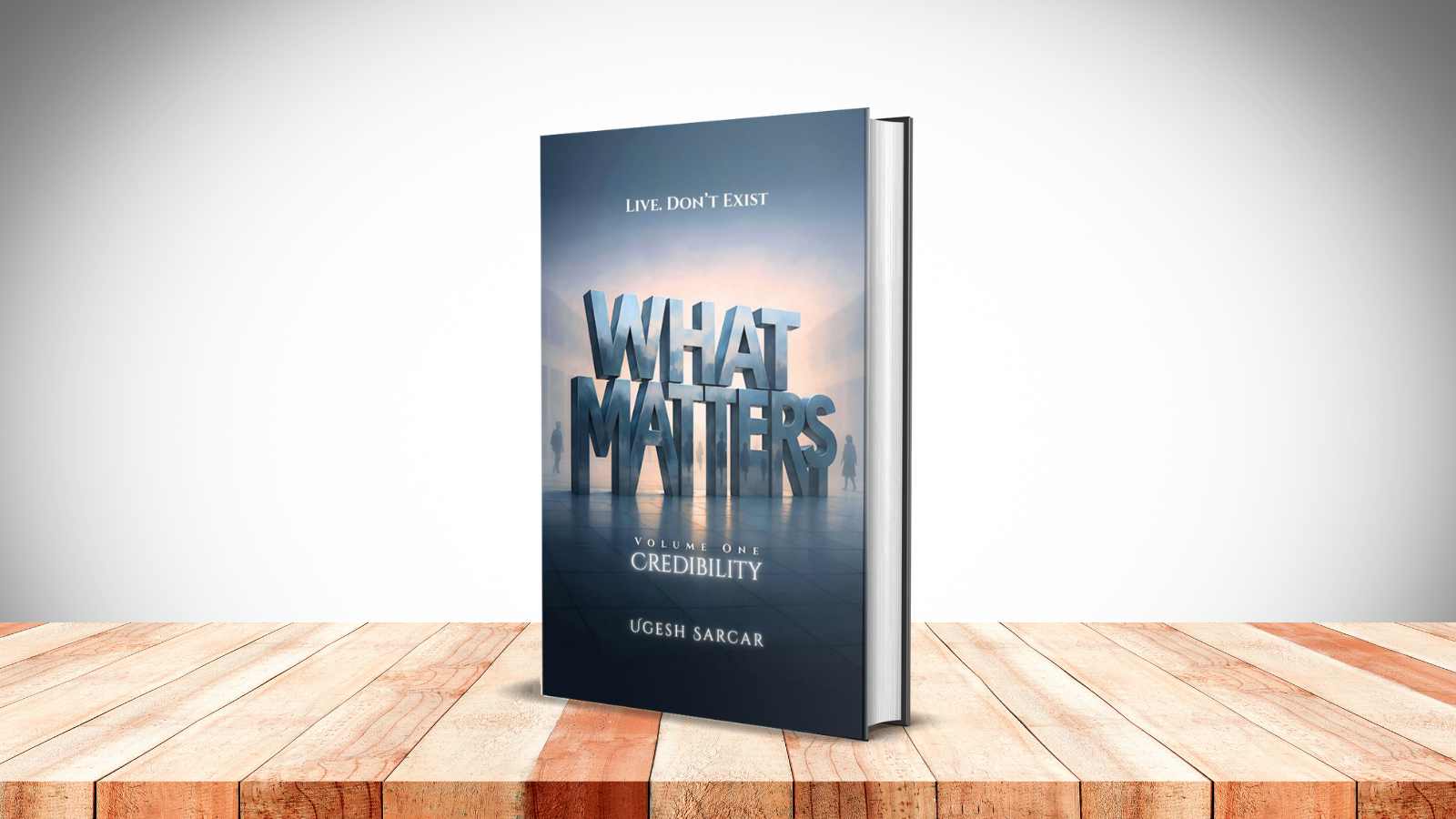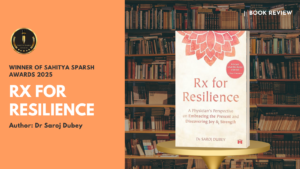Beyond Self-Help: A Review of Ugesh Sarcar’s WHAT MATTERS (VOLUME ONE: CREDIBILITY)
Forget everything you think you know about self-help books. Ugesh Sarcar’s WHAT MATTERS (VOLUME ONE: CREDIBILITY) doesn’t offer affirmations, ten easy steps, or motivational platitudes. Instead, it offers a radical proposition: transformation is a psychological dismantling, not a simple build. It’s a book that is “immersive, uncomfortable in all the right ways,” and it will ruthlessly expose the gap between who you pretend to be and who you actually are.
Part psychological thriller, part philosophical text, and part leadership manual, What Matters is a masterwork that uses a high-stakes, narrative framework to deliver profound and actionable truths about integrity, presence, and—most importantly—Credibility.
The Immersive Premise and Psychological Diagnosis
The book’s structure is its genius. Sarcar, renowned as India’s first mentalist, sets the stage at a secretive, invitation-only college founded by a billionaire visionary, Nadia Sardar. One hundred students are selected for a radical experiment: No lectures. No exams. Just raw, unfiltered challenges designed to dismantle their egos and help them discover their true selves.
The narrative follows several key characters—Ria, the control addict; Andy, the defensive rebel; and Jules, the deflection artist—as they navigate this high-pressure environment. The goal is clear: win one million dollars or gain something far greater: clarity, strength, and self-trust. This fictional frame is essential, providing the necessary psychological distance for the reader to observe human nature under duress while forcing a relentless self-confrontation.
Early on, Nadia Sardar introduces the four fundamental psychological forces that prevent people from truly living. These concepts serve as the book’s central diagnostic tool—the “Four Thieves of Life”:
- Rework: The time lost fixing mistakes that should have been right the first time.
- Drift: The quiet fade; letting intentions and dreams vanish in the stillness of the unexamined life.
- Avoidance: The refusal to face uncomfortable truths or conversations that could clear the air.
- Leakage: The silent drain of energy, focus, and resources due to unresolved internal inconsistencies.
Sarcar argues that most people are unconsciously governed by these “thieves.” The rest of the book shows how the college’s challenges are specifically engineered to expose these blind spots in real-time.
The Credibility Module: Dismantling the Performance
Volume One focuses entirely on Credibility, which Sarcar defines not as a mask worn for others, but as an unshakable internal state achieved through radical self-honesty. The curriculum is a series of escalating psychological tests designed to rip away the layers of pretense:
Credibility Through Discomfort (The Clown Shoes)
In an early exercise, students wear ridiculous, mismatched shoes across campus but are forbidden from offering any explanation. This brilliant psychological trigger exposes the universal human fear of judgment. The lesson is immediate: Credibility is not built on being understood, but on knowing you are even when you are misunderstood. The struggle to resist the urge to explain proves that most people’s sense of self is constantly being negotiated based on who is watching.
Credibility Through Action (Rumors and Silence)
The students are tasked with discreetly spreading fabricated, damaging rumors. This exercise is a masterclass in social psychology, demonstrating how quickly fiction spreads faster than fact when people are unwilling to question their assumptions. The lesson shifts to accountability, offering a framework for managing external attacks on one’s reputation: Pause and Assess, Respond with Clarity (Not Defense), and Let Your Actions Speak Louder Than Their Words. Crucially, the final debrief reveals the most damaging rumors were the ones students were telling themselves—the internal illusions that undermine self-trust.
Credibility Through Listening (The Fairness Debate)
Perhaps the most potent challenge is the “Fairness Debate,” where groups fiercely argue over the “right” way to share resources, unaware that each person has been assigned a different, valid definition of fairness. The chaos that ensues proves that listening is the ultimate expression of integrity. The conflict wasn’t about who was right, but about the failure to build trust by genuinely understanding the other person’s foundational logic. “Credibility isn’t built by how loud or right you are—it’s built when others believe you care enough to listen.”
The Climax: Reckoning and Reclamation
The book builds to a powerful climax where students are forced to watch candid, unedited video footage of their worst moments—their Avoidance, their casual cruelty, their unchecked Ego. This moment of self-confrontation is brutal and transformative.
But the final twist is the dual video revelation, where they are then shown footage of their moments of quiet strength: the unacknowledged acts of kindness, the spontaneous support, the moments when they did show up. Sarcar demonstrates that self-awareness is two-fold: you must see the harm you cause, but also the value you already possess.
The final assignment—creating sustainable change in real communities without seeking recognition—is the ultimate test. It reinforces the book’s core philosophy: “When we do things without seeking credit, we can do much more.”
Why This Book Matters
WHAT MATTERS (VOLUME ONE: CREDIBILITY) is not a comfortable read, but it is an essential one. It reframes the pursuit of success as a pursuit of integrity. It tells you to stop negotiating your existence and start building a self that is sturdy, authentic, and independent of external validation.
The book’s core message is the manifesto: Live. Don’t Exist. This isn’t just a book; it’s a doorway to a movement that values integrity over image, and depth over performance. If you are ready to stop performing your life and start living it consciously, this book is your guide and your catalyst. Be warned: once you see the truth of your own psychological masks, you can’t unsee them.
*Ready to stop existing? Let the conversation continue below. What “thief” do you struggle with the most: Rework, Drift, Avoidance, or Leakage?




